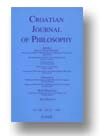
PHILOSOPHY AND RHETORIC
Scope & Guideline
Advancing Critical Dialogue in Philosophy and Rhetoric
Introduction
Aims and Scopes
- Interdisciplinary Exploration of Rhetoric and Philosophy:
The journal fosters research that bridges the gap between philosophy and rhetoric, encouraging contributions that examine how rhetorical practices influence philosophical arguments and concepts. - Historical Contextualization:
It emphasizes the importance of historical perspectives in understanding rhetorical theories, often revisiting classic texts and figures to extract contemporary relevance. - Critical Engagement with Contemporary Issues:
The journal frequently addresses current social, political, and ethical issues through the lens of rhetoric, providing insights into how rhetorical strategies shape public discourse. - Innovative Methodologies:
Contributors are encouraged to utilize diverse methodologies, including qualitative, quantitative, and hermeneutical approaches, to analyze rhetorical phenomena. - Focus on Non-Western and Marginalized Perspectives:
There is a growing emphasis on incorporating voices and methodologies from non-Western traditions and marginalized communities, enriching the discourse surrounding rhetoric and philosophy.
Trending and Emerging
- Rhetoric and Violence:
There is an increasing focus on the intersections of rhetoric and violence, exploring how language can perpetuate or resist violence in various contexts, including institutional and systemic frameworks. - Philosophy of Time and Kairos:
The concept of 'Kairos' and its implications for understanding time in rhetorical contexts has gained prominence, reflecting a deeper engagement with temporal philosophy and its relevance to rhetoric. - Embodied Rhetoric and Materiality:
Emerging discussions on embodied rhetoric highlight the significance of physical presence and material conditions in rhetorical practices, emphasizing the interplay between body, space, and discourse. - Sonic and Aural Rhetorics:
The exploration of sound and listening as rhetorical acts is increasingly prevalent, indicating a broader understanding of rhetoric beyond the written and spoken word. - Global and Decolonial Perspectives:
The journal is increasingly incorporating global and decolonial perspectives, examining how rhetoric shapes and is shaped by diverse cultural contexts, particularly in relation to issues of identity and power.
Declining or Waning
- Traditional Rhetorical Structures:
Discussions centered on classical rhetorical structures (e.g., ethos, pathos, logos) have become less frequent, as the journal increasingly prioritizes innovative and contemporary interpretations of rhetoric. - Meta-Argumentation:
Themes specifically focused on meta-argumentation, such as formal logic and fallacies, are appearing less often, suggesting a shift towards more applied and context-sensitive analyses of rhetoric. - Purely Descriptive Studies:
There seems to be a decline in papers that offer purely descriptive accounts of rhetorical practices without critical engagement or theoretical depth, as the journal values analytical and interpretive contributions that challenge existing paradigms.
Similar Journals

Alpha-Revista de Artes Letras y Filosofia
Unveiling New Horizons in Arts and LettersAlpha-Revista de Artes Letras y Filosofia is an esteemed academic journal published by Universidad de Los Lagos in Chile, focusing on the dynamic fields of arts, letters, and philosophy. Since its inception in 2008, the journal has fostered interdisciplinary dialogue and innovative research, contributing to the evolving discourse in the humanities. With an ISSN of 0716-4254 and an E-ISSN of 0718-2201, it stands out in the Q3 quartile for Arts and Humanities (miscellaneous) as of 2023, ranking #108 out of 173 in the Scopus metrics, underscoring its significance within the academic community with a 37th percentile ranking. Though it operates as a subscription-based journal, it ensures accessibility to a broad audience, thus facilitating the exchange of knowledge among researchers, professionals, and students alike. The editorial board actively invites contributions that engage critically with cultural, philosophical, and artistic frameworks, thereby advancing understanding and appreciation of diverse perspectives in the humanities.

African Journal of Rhetoric
Amplifying Voices, Shaping DialoguesThe African Journal of Rhetoric, ISSN 1998-2054, is a leading publication dedicated to the study and advancement of rhetorical theory and practice within the African context. Published by the African Association of Rhetoric, this journal seeks to amplify diverse voices and perspectives, fostering critical dialogue and innovative research in the fields of communication, linguistics, and social sciences. With a commitment to promoting open discourse, the journal provides valuable insights into rhetorical strategies, cultural narratives, and their implications on society, making it an indispensable resource for researchers, professionals, and students alike. The journal is based in Cape Town, South Africa, an epicenter of cultural and intellectual exchange, and encourages submissions that explore the intersection of rhetoric and contemporary issues. As we embrace the evolving landscape of communication, the African Journal of Rhetoric aims to be a pivotal platform for scholarship that bridges local and global dialogues in the study of rhetoric.

Croatian Journal of Philosophy
Exploring Diverse Perspectives in PhilosophyCroatian Journal of Philosophy is a distinguished academic platform dedicated to the advancement of philosophical discourse, published by KRUZAK D O O. With an ISSN of 1333-1108 and an E-ISSN of 1847-6139, this journal has been a key player in the field since its inception in 2008, continuing to progress through its converged years until 2024. Recognized for its scholarly contributions, it holds a prestigious placement in Q3 within the philosophy category for 2023 and ranks #571 out of 806 in Scopus, reflecting its engagement with a broad spectrum of scholarly discussions and ideas. Though it operates without an Open Access model, the journal remains a vital resource for researchers, professionals, and students who are keen to explore contemporary and traditional philosophical issues from diverse perspectives. The journal's commitment to expanding the boundaries of philosophical inquiry emphasizes the significance of interdisciplinary dialogue, making it a reputable choice for those seeking to deepen their understanding of philosophical thought.

Comparative Philosophy-An International Journal of Constructive Engagement of Distinct Approaches toward World Philosophy
Promoting Interdisciplinary Insights in World PhilosophyComparative Philosophy: An International Journal of Constructive Engagement of Distinct Approaches toward World Philosophy, published by SAN JOSE STATE UNIVERSITY, is a leading platform for scholarly dialogue in the realm of philosophical inquiry. With an Open Access format since 2010, the journal seeks to facilitate the exchange of ideas among philosophers across different traditions, thus promoting an enriched understanding of global philosophical perspectives. Designed to cater to the interests of researchers, professionals, and students, the journal emphasizes the constructive engagement of diverse philosophical methodologies, addressing pressing contemporary issues and fostering interdisciplinary discourse. By bridging cultural and ideological divides, Comparative Philosophy plays a pivotal role in advancing philosophical thought and inquiry, making it an invaluable resource for anyone invested in the study of world philosophies.

VERIFICHE
Exploring the Depths of Philosophical InquiryVERIFICHE, published by ASSOC TRENTINA SCI UMANE, is a distinguished academic journal hailing from Italy, focusing on the intricate field of Philosophy. With an ISSN of 0391-4186, this journal serves as a pivotal platform for scholars and thought leaders engaged in philosophical discourse, examining both theoretical and practical aspects of the discipline. Despite its classification in the Q4 category of the 2023 journal ranks, and a Scopus ranking of #602 out of 806 within the Arts and Humanities, it plays a significant role in contributing to philosophical knowledge and debate. The journal has matured over a significant timeframe, covering topics from 2014 to 2022, and is committed to fostering intellectual engagement among researchers, professionals, and students alike. Although currently not available as an open access journal, VERIFICHE remains an important resource for those seeking to explore the depth of philosophical inquiry and its applications in contemporary society.

Journal of Theoretical and Philosophical Psychology
Fostering Innovative Dialogues in Psychological TheoryThe Journal of Theoretical and Philosophical Psychology, published by the Educational Publishing Foundation in collaboration with the American Psychological Association, is a premier platform for scholarly discourse at the intersection of psychology, philosophy, and theoretical frameworks. With an impressive impact ranking, this journal holds a prestigious Q1 classification in Philosophy and a Q3 classification in Miscellaneous Psychology for 2023, reflecting its significance and authority in the field. Established in 1986 and continuously relevant through 2024, the journal caters to a diverse readership of researchers, professionals, and students who are exploring complex psychological phenomena from a philosophical lens. Although the journal is not open access, it remains a critical avenue for disseminating innovative ideas and rigorous research methodologies, underpinning its role in advancing theoretical conversations and applications within the psychological sciences. By publishing high-quality manuscripts, the Journal of Theoretical and Philosophical Psychology contributes to the ongoing dialogue surrounding the philosophical implications of psychological theories, fostering a deeper understanding of the human experience.

Convivium
Connecting Minds Through Critical ResearchConvivium is a distinguished open-access journal published by the Universitat de Barcelona, Facultat Filologia, specializing in the field of philosophy. Since its inception, the journal has committed to fostering scholarly dialogue by providing a platform for innovative and critical research. Operating under an open-access model since 2007, Convivium ensures that its articles, which span a range of contemporary philosophical topics, are freely accessible to a global audience, thereby promoting the dissemination of knowledge. Despite facing challenges indicated by its current Scopus rank in the 2nd percentile of the Arts and Humanities, and its Q3 quartile in 2023, Convivium continues to thrive as an important resource for researchers, professionals, and students engaged in philosophical inquiry. With published volumes converging from 2009 to 2014, 2017 to 2018, and 2021 to 2023, the journal is poised to contribute significantly to the ongoing discussions and developments in philosophy.

Res Rhetorica
Encouraging Innovative Perspectives in RhetoricRes Rhetorica is a distinguished open-access journal published by the Polish Rhetoric Society, dedicated to advancing the fields of communication and linguistics since its establishment. With a commitment to fostering scholarly discourse, the journal aims to explore the nuances of rhetorical theory and practice, unveiling critical insights that illuminate the interplay between language and societal dynamics. Based in Poland and operating from the University of Warsaw's Department of Italian Studies, Res Rhetorica has gained recognition in the academic community, receiving a Q4 ranking in Communication and a Q3 ranking in Linguistics and Language for 2023. Although its HIndex is currently undefined, the journal's strategic focus on open-access publishing since 2014 facilitates widespread dissemination and engagement with its research articles. Spanning converged years from 2019 to 2024, this journal serves as an essential resource for researchers, professionals, and students alike, encouraging innovative perspectives and collaborative dialogue in the vibrant realms of rhetoric, language, and communication.

Cuadernos de Filosofia Latinoamericana
Unveiling Diverse Perspectives in PhilosophyCuadernos de Filosofia Latinoamericana is an esteemed academic journal dedicated to the exploration of philosophical discourse and critical thought in the context of Latin American studies. Published by UNIV SANTO TOMAS, this journal serves as a vital platform for scholars and researchers looking to delve into diverse philosophical traditions and contemporary issues affecting the region. With an ISSN of 0120-8462 and an E-ISSN of 2500-5375, it remains committed to the dissemination of rigorously researched articles that challenge established paradigms and promote innovative thinking. Although currently not listed as an Open Access publication, its significant potential for enhancing academic dialogues in philosophy makes it an essential resource for professionals, students, and academics eager to engage with Latin American philosophical perspectives. The journal's commitment to quality and relevance in its thematic scope underscores its importance in enriching the philosophical landscape of Latin America and beyond.

FILOZOFIA
Advancing Philosophical Discourse and InquiryFILOZOFIA is a prominent open-access journal published by the Institute of Philosophy of the Slovak Academy of Sciences and the Institute of Philosophy of the Czech Academy of Sciences. Since its inception in 2002, it has become a vital resource in the fields of Philosophy and Religious Studies, achieving a Q2 ranking in Philosophy and a Q1 ranking in Religious Studies as of 2023. With an ISSN of 0046-385X and an E-ISSN of 2585-7061, the journal delivers high-quality, peer-reviewed research accessible to a global audience following its transition to open access in 2020. Its commitment to scholarly excellence is reflected in its Scopus rankings, placing it in the top half of both fields with significant contributions to ongoing philosophical discourse. Researchers, professionals, and students alike benefit from the journal's dedication to fostering dialogues that challenge and expand the realms of philosophical inquiry and understanding.